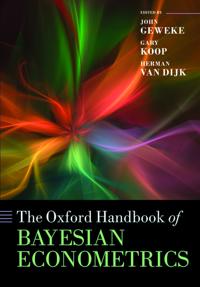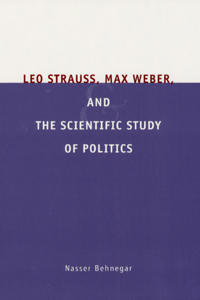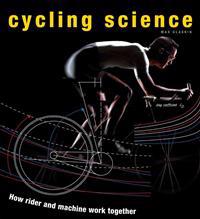Explorations in Information Space (Inbunden)
avMax Boisot, Ian C. MacMillan, Kyeong Seok Han
ISBN: 9780199250875 - UTGIVEN: 200712With the rise of the knowledge economy, the knowledge content of goods and services is going up just as their material content is declining. Economic value is increasingly seen to reside in the former - that is, in intangible assets - rather than in the latter. Yet we keep wanting to turn knowledge [...]
Journals (Pocket)
avRobert Falcon Scott, Max Jones, Robert Falcon Scott
ISBN: 9780199536801 - UTGIVEN: 200809'For God's sake look after our people' Captain Scott's harrowing account of his expedition to the South Pole in 1910-12 was first published in 1913. In his journals Scott records his party's optimistic departure from New Zealand, the hazardous voyage of theTerra Nova to Antarctica, and the trek wi[...]
Collisions and Collaboration (Inbunden)
avMax Boisot, Markus Nordberg, Said Yami
ISBN: 9780199567928 - UTGIVEN: 201107After twenty-five years of preparation, the Large Hadron Collider at CERN, Geneva, is finally running its intensive scientific experiments into high-energy particle physics. These experiments, which have so captured the public's imagination, take the world of physics to a new energy level, the teras[...]
The Royal Navy and the German Threat 1901-1914 (Inbunden)
avMax Boisot, Markus Nordberg, Said Yami
ISBN: 9780199574032 - UTGIVEN: 201205When and why did the Royal Navy come to view the expansion of German maritime power as a threat to British maritime security? Contrary to current thinking, Matthew S. Seligmann argues that Germany emerged as a major threat at the outset of the twentieth century, not because of its growing battle fle[...]
Max Planck Encyclopedia of European Private Law (Inbunden)
ISBN: 9780199578955 - UTGIVEN: 201203The emergence of European private law constitutes one of the most significant developments in the modern legal landscape. Driven by the European Union, a political programme of harmonization has begun to reshape the national private laws of Member States. Successful legal reform depends on a solid f[...]
Self Impression: Life-Writing, Autobiografiction, and the Forms of Modern Literature (Inbunden)
avMax Saunders
ISBN: 9780199579761 - UTGIVEN: 2010-04-22Self Impression (Pocket)
avMax Saunders
ISBN: 9780199657698 - UTGIVEN: 2013-03-21Self Impression explores the fascinating ways in which writers from the 1870s to the 1930s - including Pater, Ruskin, Proust, Joyce, Stein, Pound, and Woolf - experimented with forms of life-writing. It proposes a new relation between autobiography and fiction in the period and a radically innovati[...]
Financial Regulation and Supervision (Inbunden)
avMax Boisot, Markus Nordberg, Said Yami
ISBN: 9780199660902 - UTGIVEN: 201208This comprehensive account of financial regulation and supervision in times of crisis analyses the complex changes under way regarding the new financial regulatory structures in the EU. Focusing on the organisation of financial supervision, it deals with the background to the reforms, the architectu[...]
Ford Madox Ford: A Dual Life: Volume 1: The World Before the War (Pocket)
avMax Saunders
ISBN: 9780199668342 - UTGIVEN: 2012-09-13Ford Madox Ford a Dual Life (Pocket)
avMax Saunders
ISBN: 9780199668359 - UTGIVEN: 2012-11The second volume of Max Saunders's magisterial biography of Ford Madox Ford takes up the story from Ford's enlistment in the army and departure for France in 1916. Like its predecessor, The After-War World makes full use of previously unpublished and long-lost material. It is the first biography to[...]
The Oxford Handbook of Bayesian Econometrics (Häftad)
avMax Boisot, Markus Nordberg, Said Yami
ISBN: 9780199681334 - UTGIVEN: 201307Bayesian econometric methods have enjoyed an increase in popularity in recent years. Econometricians, empirical economists, and policymakers are increasingly making use of Bayesian methods. This handbook is a single source for researchers and policymakers wanting to learn about Bayesian methods in s[...]
Endocrine Psychiatry (Inbunden)
avEdward Shorter, Max Fink
ISBN: 9780199737468 - UTGIVEN: 201005The riddle of melancholia has stumped generations of doctors. It is a serious depressive illness that often leads to suicide and premature death. The disease's link to biology has been intensively studied. Unlike almost any other psychiatric disorder, melancholia sufferers have abnormal endocrine [...]
Max/MSP/Jitter for Music (Inbunden)
avVincent J. Manzo
ISBN: 9780199777679 - UTGIVEN: 201112In Max/MSP/Jitter for Music, expert author and music technologist V. J. Manzo provides a user-friendly introduction to a powerful programming language that can be used to write custom software for musical interaction. Through clear, step-by-step instructions illustrated with numerous examples of wor[...]
Max/MSP/Jitter for Music (Häftad)
avVincent J. Manzo
ISBN: 9780199777686 - UTGIVEN: 201112A practical guide for readers of all levels of programming ability, Max/MSP/Jitter for Music teaches all of the necessary skills for writing custom software for musical interaction using the programming language Max/MSP/Jitter. In step-by-step instructions, expert author VJ Manzo guides readers thr[...]
The Lanterne Rouge (Inbunden)
avMax Leonard
ISBN: 9780224091992 - UTGIVEN: 2014-04Lanterne rouge: French / noun 1. The red lantern that hangs on the rear of a train 2. The competitor who finishes last in the Tour de France. If you complete a bike race of over 3,000 kilometres, overcoming mountain ranges and merciless weather conditions while enduring physical and psychological ag[...]
Lanterne Rouge (Storpocket)
avMax Leonard
ISBN: 9780224092005 - UTGIVEN: 2015-06Lanterne rouge: French / noun 1. The red lantern that hangs on the rear of a train 2. The competitor who finishes last in the Tour de France. If you complete a bike race of over 3,000 kilometres, overcoming mountain ranges and merciless weather conditions while enduring physical and psychological ag[...]
Leo Strauss, Max Weber, and the Scientific Study of Politics (Pocket)
avNasser Behnegar
ISBN: 9780226041438 - UTGIVEN: 2005-07Almost three decades after Leo Strauss's death, Nasser Behnegar offers the first sustained exposition of what Strauss was best known for: his radical critique of contemporary social science - particularly of political science. Behnegar argues that Strauss was not averse to the scientific study of po[...]
Max Weber and German Politics (Pocket)
avWolfgang J. Mommsen, Michael (TRN) Steinberg, Wolfgang J. Mommsen
ISBN: 9780226533995 - UTGIVEN: 1990-07A major work of German historiography, this comprehensive account of Weber's political views and activities reveals that, paradoxically, Weber was at once an ardent liberal and a determined German nationalist and imperialist. Wolfgang J. Mommsen shows the important links between these seemingly conf[...]
Max Weber (Pocket)
avFritz K. Ringer
ISBN: 9780226720050 - UTGIVEN: 2004-10A comprehensive introduction to Weber's thought. Fritz Ringer locates Weber in his historical context, relating his ideas to the controversies and politics of his day and considers the importance of Weber to contemporary life.[...]
On Feeling, Knowing and Valuing (Häftad)
avMax Scheler
ISBN: 9780226736716 - UTGIVEN: 199210One of the pioneers of modern sociology, Max Scheler (1874-
1928) ranks with Max Weber, Edmund Husserl, and Ernst
Troeltsch as being among the most brilliant minds of his
generation. Yet Scheler is now known chiefly for his
philosophy of religion, despite [...]Cycling Science: How Rider and Machine Work Together (Inbunden)
avMax Glaskin
ISBN: 9780226924137 - UTGIVEN: 2012-11Every July hundreds of thousands flock to the Champs-elysees in Paris--and millions more to their televisions and computers--to witness the dramatic conclusion of the grueling three weeks of the Tour de France. There is no better measure of the worldwide love of the bicycle. But of the 1.2 billion c[...]
Max Weber and Contemporary Capitalism (Inbunden)
avNicholas Gane
ISBN: 9780230242036 - UTGIVEN: 2012-09This book turns back to a famous classical source - the work of Max Weber - in order to think in new ways about capitalism today. By reading between Weber and a range of contemporary theorists, including Gilles Deleuze, Ulrich Beck and Zygmunt Bauman, it is argued that the on-going value of Weber's [...]
Max Stirner (Inbunden)
avSaul Newman
ISBN: 9780230283350 - UTGIVEN: 2011-10Max Stirner was one of the most important and seminal thinkers of the mid-nineteenth century. In the shadows of Hegel, Stirner developed possibly the most radical and devastating critique ever of the discourses of modernity, incurring the ire of Marx, prefiguring Nietzsche, and having a major (thoug[...]
Public Papers of the Secretaries General of the United Nations: v. 6: U Thant, 1961-64 (Inbunden)
avAndrew W. Cordier, Max Harrelson
ISBN: 9780231039666 - UTGIVEN: 1978-01-01Public Papers of the Secretaries General of the United Nations: v. 7: U. Thant, 1965-1967 (Inbunden)
avAndrew W. Cordier, Max Harrelson
ISBN: 9780231040983 - UTGIVEN: 1978-01-01


























